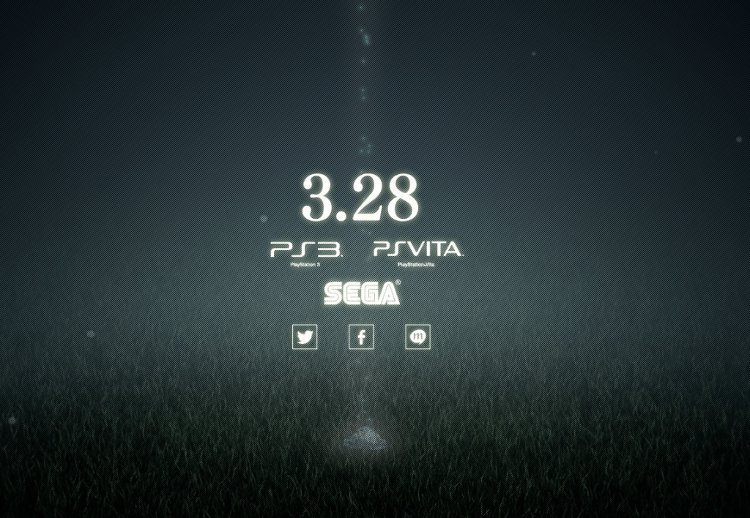For as long as I can remember we’ve seen a gradual class separation in the United States. The current drift isn’t as severe as in times like the Civil War, or the caste systems of old, but it’s definitely present. If you take a look at recent occurrences like the “Occupy Wallstreet” movement, and the newly revisited “Tea Parties” happening in the U.S. it’s pretty apparent there’s people on distinctly different sides of many domestic issues, mostly financial.
More recently the video games industry is developing this type of fissure as well. There’s a distinct line that’s been drawn in the sand with publishers and gamers alike. It seems like were seeing either very small “Indie” developed games hitting it big, or games with absurd budgets remaining supreme. There hasn’t been much love for the middle ground this console generation, and that’s evidenced by the sheer number of sequels to successful game franchises like Call of Duty, Assassin’s Creed, Uncharted, and Gears of War. Further evidence is the lack of new IP’s being produced in the console arena. It’s growing harder for large publishers to take risks on new properties and ideas with the threat of considerable losses looming.
As of late gamers themselves have created several opposing camps within the community. Some have ignited flame wars that burned so hot they could have contributed to the melting of Harrenhal. These online comment wars are mostly based on polarizing franchises like the aforementioned lot. The other regular topic that divides gamers, and ignites wildfire is choice of gaming platform. The battle lines have been drawn between current gen consoles like the Xbox 360, Playstation 3, Wii/U, and of course the PC. This is easily attributed to first party game exclusivity, periods of DLC exclusivity on specific consoles, pure platform preference, and financial implications. The financial aspect applies most notably in reference to PC vs. Console gaming. The PC vs. Console war has been running rampant since before time it would seem, with seemingly no end in sight. In my humble opinion I think this is the most distinct line in the gaming community. Home game consoles are appealing to the masses due to their relatively low cost and software variety. The home console is also heavily criticized be the PC specific community (not without it’s merits) as being a “poor mans” gaming experience. Whereas the PC is known as “high end” gaming hardware due to it’s glaring superiority in graphics and lower software costs. The division in the gaming community doesn’t end there by any means.
Gamers are flocking to either summer movie blockbuster action titles, or uniquely creative game experiences whose development budgets lie on the polar opposite side of the spectrum. That’s reflective of the financial and social state the U.S. is currently in. There’s a heavy focus on the upper and lower class, and the only real mention of the middle class is during political pandering. During the recent Presidential election the Incumbent (Obama) focused heavily on his opponent Mitt Romney’s wealth and stature to create a barrier between Romney, and what Romney himself referred to as the “47%”. That term became one of the many nails in Romney’s coffin as it was used to deface him in the eyes of lower income voters. There’s a reason why there wasn’t as much effort put into the middle class during the election, and it’s similar to why the middle ground is so risky in the game publishing business. Middle America is fickle and hard to predict. The middle class vote usually has less to do with money, and more to do with convictions and beliefs. It may be one of the oldest political stereotypes, but wealthy tends to lead to a conservative vote, and low income tends to sway the way of the liberals. The same archetype translates to video game publishing as well. Large development budgets are typically awarded to “safe” or “established” franchises (in other words the conservative approach) and smaller budgets fall onto more “risky” or “unproven” ideas (a more open, or liberal approach). While the middle class, or mid tier developers are still churning out games that are quietly published and forgotten. These developers are given enough capitol to create games that borrow mechanics and stories from more successful franchises in the hopes that they can cash in on some of the momentum that was previously generated.
Even big budget titles are having a tough time nowadays. Exceedingly high expectations from gamers in the realm of graphics especially are pushing the envelope in terms of developer quality, length of game development, and the expensive tools necessary to undertake such herculean tasks. Even established franchises like Hitman and Tomb Raider have thus far failed to meet sales expectations. Higher budgets for development and marketing translate into the necessity to sell several million units just to break even. This is evidenced by the trouble publisher Square Enix is currently in. At the same time the aforementioned titans of the gaming industry are still enjoying incredibly high sales figures, but just how long will that last? There’s an alarming amount of rinse and repeat happening in said franchises, and we may be close to the summit of the cash mountain. The inevitable franchise fatigue caused by yearly releases may already be starting to set in (at least with the vocal minority), and our Sherpa’s could be at the ready to aid in the inevitable descent down the sales slope. Some of the staples of American Ingenuity like Detroit based Daimler Chrysler have fallen victim to bloated productions costs, and depleted sales figures resulting in bankruptcy. Another enormous American corporation that fell victim to bankruptcy was the American International Group or AIG. AIG failed to read the decrease in the housing market effectively, and continued to pump absurd amounts of money into the market. It’s less than conservative lending practices led to it’s own demise. AIG became just another example of a large corporation not managing it’s assets correctly. This formula is indicative of many games publishers that either find themselves in trouble at the moment (Square Enix), or have already been laid to rest (THQ). Toy Headquarters or THQ haphazardly funded R&D on the UDraw gaming tablet (a single touch tablet peripheral) that’s supreme failure led to the demise of the long time games publisher.
In contrast smaller developers, and publishers alike are starting to enjoy access to a larger market share due to the proliferation of digital platforms. Opportunities for small developers are becoming increasingly attainable. The Steam Green Light process has helped games like Kingdom Rush and Giana Sisters: Twisted Dreams release to critical and fan acclaim. Kickstarter is also deserving of a lion’s share of the credit. Helping games like Wasteland 2, Doublefine Adventure, and Dreamfall: Chapters receive the funding they needed to be fully realized. Kickstarter has also spawned a new gaming platform. The Android based OUYA will allow developers a brand new open environment to publish games. Another company that started rather humbly during this century is Arkadium. This successful American small business actually finds it’s ties directly in the gaming industry. A New York City couple with a shared passion for arcade and retro video games built a small business with the aim of bringing arcade style games to the internet. Arkadium is now one of the leading developers of casual games with over 300 titles in their library, and 150 employees. This kind of success wouldn’t be possible without the mass industry appeal for smaller, more unique experiences. It’s inspiring to know that the “American Dream” is still attainable with a solid vision, and hard work.
It’s unfortunate that this trend of division is occurring in both settings, but it’s a typical David and Goliath mindset. You can’t have large without small to compare it to, and you can’t have light without dark. Since the start of the century rare occurrences of unity have been spotted in the gaming industry as well as U.S. itself. Electronic Arts deserves credit for uniting the gaming community on more than one occasion. The ending of the popular sci-fi RPG Mass Effect was responsible for spawning one of the largest outcries in video game history. The gaming community united under a banner of disgust based on the outcome of the popular series. This unrest resulted in the first ever successful petition that forced a developer to change the ending of a video game. More recently EA and Maxis afforded another sacrificial lamb to the gaming community. The release of SimCity under the always on DRM requirement resulted in another enormous war cry from gamers. Gaming forums around the nets exploded with justifiable rage over the failed launch of the online required gaming experience. In loose comparison, two events since the turn of the century have united American’s like no other. One a grizzly tragedy, and another an equally grizzly triumph. I’m, of course, referring to the travesty that was 9/11 and the subsequent assassination of Osama Bin Laden.
Certain titles are even starting to blur the line some of us are so fixated on. Both Journey and The Walking Dead won 2012 Game of the Year honors, and neither could be considered high nor low budget games. thatgamecompany cleaned out the 2012 Game Developers Choice Awards, and was one of the most popular titles on the PSN in 2012. Telltale Games also saw huge success with their brilliantly penned take on The Walking Dead. Both titles appeared as downloadable only early on, and were offered on disc later after said success.
In light of these divisions and unifications I’m hopeful that the future will bring both the gaming industry/community and the U.S. back together. We rest on the precipice of a new console generation, and that will hopefully open the opportunity for gamers to start enjoying titles from a broader spectrum once again. A new platform generally motivates larger games publishers to take risks on new ideas and properties to “strike while the iron is hot“. That usually results in a wider range of games with differing budgets being made available. Also, with domestic housing markets and sales beginning to etch out a foothold again, maybe we’ll see some relief in the financial and societal division in the states. In regards to both video games and the state of the U.S. time will only tell if we can blur the line that’s been separating us for far too long.





